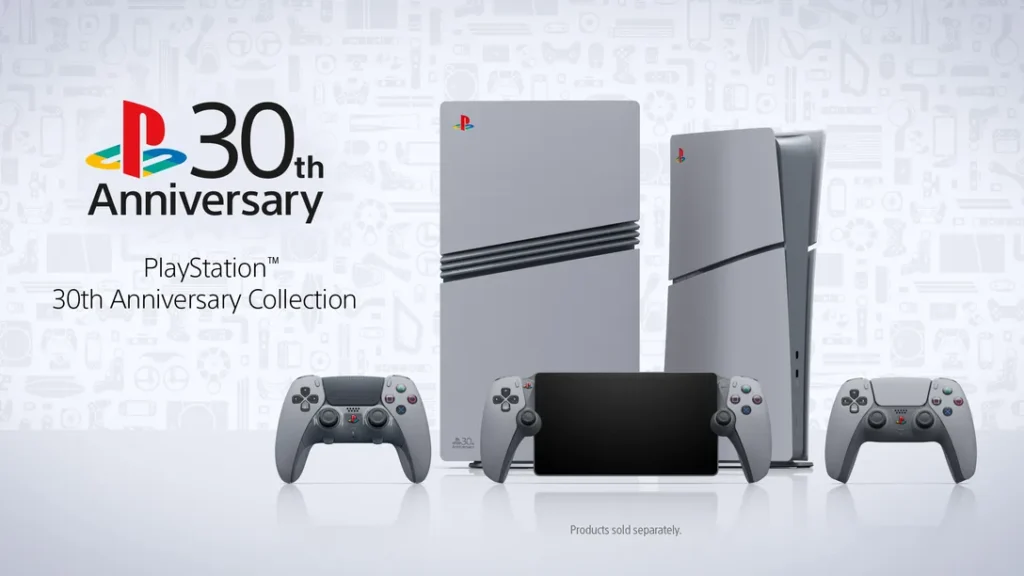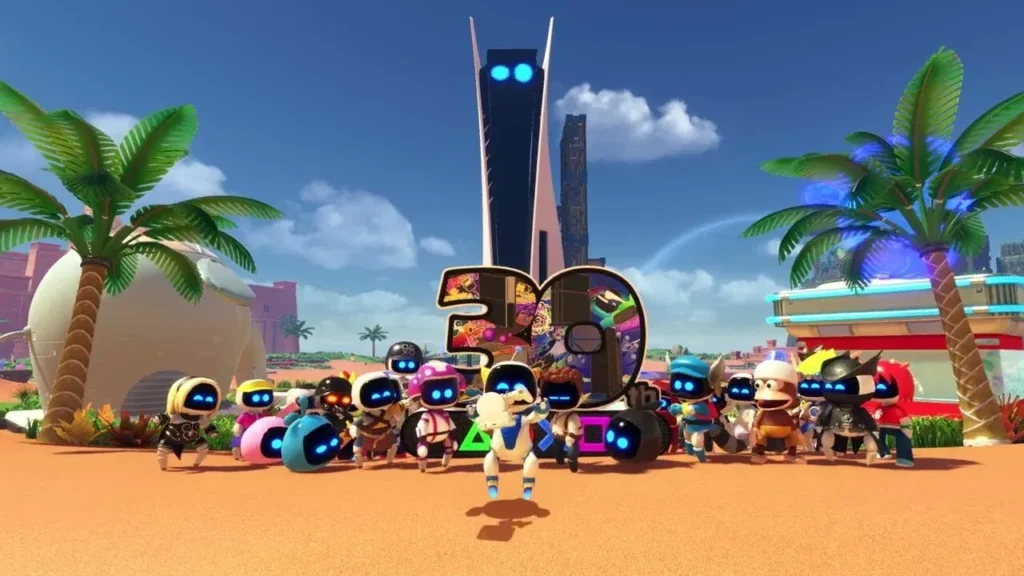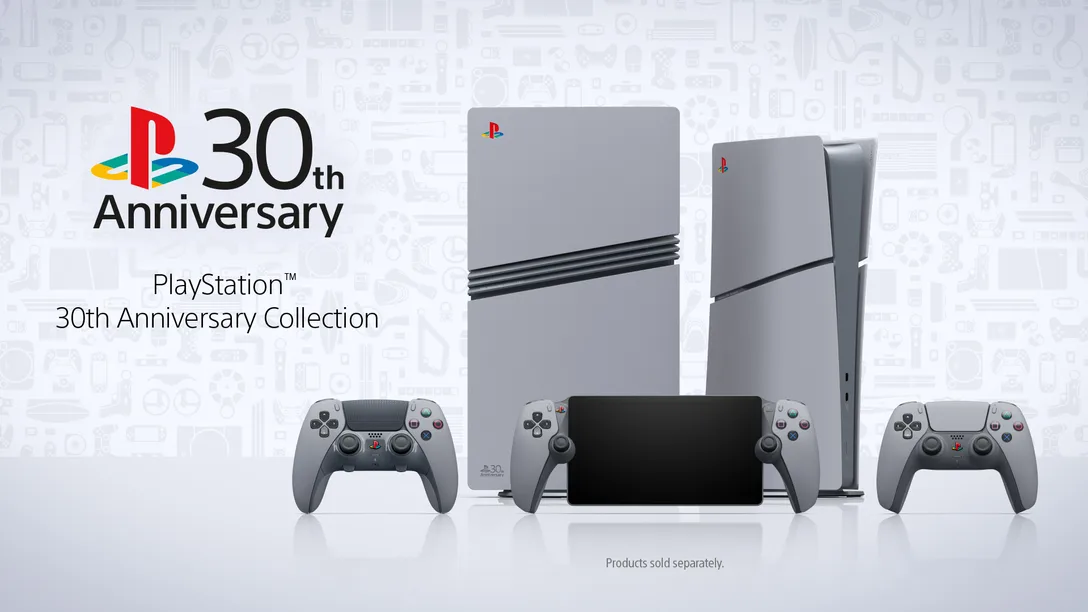Thirty years ago, a revolutionary gaming console made its debut and changed the landscape of the video game industry forever. PlayStation, Sony’s groundbreaking console, not only defined a generation but also set new standards for gaming. As we celebrate the PlayStation 30th anniversary, we look back at its remarkable journey and the impact it has had on gamers worldwide.

From the original PlayStation’s polygonal graphics to the immersive experiences offered by the PlayStation 5, Sony has consistently pushed the boundaries of what gaming can be. This milestone isn’t just about celebrating a brand; it’s about acknowledging a cultural phenomenon that has shaped how we play and experience games. Join us as we explore the evolution of PlayStation, its iconic games, and how it has become a beloved part of gaming history.
PlayStation’s Evolution: From PS1 to PS5
The Original PlayStation: A Game-Changer
Launched in 1994, the original PlayStation, or PS1, was a game-changer in every sense of the word. With its CD-ROM format and impressive 3D graphics capabilities, it stood out in a market dominated by cartridge-based consoles. Titles like “Final Fantasy VII,” “Metal Gear Solid,” and “Resident Evil” showcased what was possible on this new platform, setting the stage for future gaming innovations.
The PlayStation’s CD-ROM technology allowed for more complex and immersive games, with greater storage capacity than its competitors. This led to the development of longer, more detailed games with enhanced audio and full-motion video sequences. Its controller design also introduced the iconic dual analog sticks, which would become a standard feature in future consoles.
The Transition to PlayStation 2 and 3
The PlayStation 2 (PS2) launched in 2000 and quickly became the best-selling console of all time. With its backward compatibility, DVD playback capabilities, and a library of over 4,000 games, the PS2 dominated the market. Games like “Grand Theft Auto: San Andreas,” “Shadow of the Colossus,” and “God of War” pushed the console’s hardware to its limits, offering players unparalleled experiences.
The PlayStation 3 (PS3), released in 2006, marked Sony’s entry into high-definition gaming. With its powerful Cell processor and Blu-ray drive, the PS3 offered enhanced graphics and larger game worlds. However, it faced stiff competition from Microsoft’s Xbox 360. Despite a rocky start, the PS3 eventually found its stride with exclusive titles like “Uncharted,” “The Last of Us,” and “Metal Gear Solid 4,” solidifying its place in gaming history.
PlayStation 4 and 5: Modern Marvels
The PlayStation 4 (PS4) launched in 2013 and quickly gained popularity thanks to its focus on social gaming and powerful hardware. With games like “Horizon Zero Dawn,” “Bloodborne,” and “Spider-Man,” the PS4 became a must-have console for gamers. Its user-friendly interface, robust online services, and the introduction of PlayStation VR expanded the ways players could enjoy their favorite titles.
The PlayStation 5 (PS5), released in 2020, represents the pinnacle of gaming technology. With ultra-fast SSDs, ray tracing capabilities, and a new controller featuring haptic feedback and adaptive triggers, the PS5 offers an immersive gaming experience like no other. Exclusive titles like “Demon’s Souls,” “Ratchet & Clank: Rift Apart,” and “Returnal” demonstrate the console’s power and potential.
Iconic Games That Defined PlayStation

Groundbreaking Titles of the PS1 Era
The original PlayStation was home to many iconic games that have become classics. “Final Fantasy VII” introduced players to an epic RPG experience with a compelling story and innovative gameplay mechanics. “Metal Gear Solid” revolutionized the stealth genre, while “Resident Evil” brought survival horror to the forefront of gaming.
These games not only pushed the boundaries of what was possible on a console but also set the standard for storytelling and gameplay in the industry. They introduced players to memorable characters, intricate narratives, and gameplay mechanics that would influence countless games to come.
PlayStation 2 and 3’s Genre-Defining Hits
The PS2 era saw the rise of open-world games and cinematic storytelling. “Grand Theft Auto: San Andreas” allowed players to explore a massive, living world with unprecedented freedom. “Shadow of the Colossus” offered a minimalist yet emotionally powerful experience, while “God of War” redefined action-adventure games with its epic scale and brutal combat.
The PS3 continued this trend with titles like “Uncharted,” which combined Hollywood-style action with engaging narratives. “The Last of Us” set a new bar for storytelling in games, delivering a poignant and mature narrative that resonated with players around the world. These games showcased the power of the PlayStation brand to deliver high-quality, unforgettable experiences.
Modern Classics on the PS4 and PS5
The PS4 and PS5 have continued to build on PlayStation’s legacy with an impressive lineup of games. “Horizon Zero Dawn” offered a unique blend of open-world exploration and strategic combat. “Bloodborne” brought the challenging gameplay of the “Souls” series to a broader audience, while “Spider-Man” allowed players to experience the thrill of being the web-slinger in a stunningly detailed New York City.
The PS5’s lineup, including “Demon’s Souls” and “Ratchet & Clank: Rift Apart,” showcases the console’s capabilities, offering breathtaking visuals and smooth, immersive gameplay. These games continue to push the envelope, demonstrating Sony’s commitment to delivering top-tier gaming experiences.
The Impact of PlayStation on Gaming Culture

Shaping the Industry
Since its inception, PlayStation has been at the forefront of gaming innovation. It has consistently set new standards for what a gaming console can be, from its hardware advancements to its game library. The introduction of the PlayStation Network and PlayStation Plus brought online multiplayer and monthly game subscriptions to millions of players, influencing how we access and play games.
PlayStation’s focus on narrative-driven games has also helped elevate the medium as an art form. Games like “The Last of Us” and “God of War” have been praised not just for their gameplay but for their storytelling, character development, and emotional depth. This has contributed to the growing recognition of video games as a legitimate form of storytelling alongside movies and books.
Building a Community
Beyond hardware and games, PlayStation has built a global community of gamers. With events like the PlayStation Experience and the annual State of Play broadcasts, Sony has fostered a sense of connection among its user base. The ability to share gameplay experiences through streaming, social media, and in-game sharing features has further strengthened the PlayStation community.
This sense of community is also evident in PlayStation’s support for independent developers. By providing a platform for indie games, Sony has helped bring unique and innovative titles to a broader audience. Games like “Journey,” “Hollow Knight,” and “Celeste” have found success on PlayStation, contributing to the diversity and richness of its game library.
The Future of PlayStation
Innovations on the Horizon
As we look to the future, PlayStation shows no signs of slowing down. The PS5’s advanced hardware opens up new possibilities for game development, from more realistic graphics to faster load times and larger, more detailed game worlds. Sony’s investment in virtual reality and cloud gaming suggests that the future of PlayStation will continue to be at the cutting edge of technology.
The DualSense controller, with its haptic feedback and adaptive triggers, hints at a future where gameplay is even more immersive and intuitive. These innovations not only enhance the player experience but also give developers new tools to create unique and engaging games.
Expanding the PlayStation Ecosystem
Sony’s recent initiatives indicate a broader vision for the PlayStation brand. The PlayStation Now streaming service and the PlayStation Plus Collection offer access to a vast library of games, making it easier than ever for players to explore classic and current titles. This focus on accessibility and convenience is likely to be a key part of PlayStation’s strategy moving forward.
Additionally, Sony’s exploration of bringing PlayStation games to other platforms, including PC, suggests a future where PlayStation experiences are not confined to a single console. This could lead to a more integrated and expansive PlayStation ecosystem, offering players even more ways to enjoy their favorite games.
Conclusion
The 30th anniversary of PlayStation is more than just a milestone; it’s a celebration of the evolution of gaming. From the groundbreaking PS1 to the state-of-the-art PS5, PlayStation has consistently pushed the boundaries of what is possible in video games. It has shaped the industry, brought unforgettable experiences to millions of players, and created a lasting legacy that continues to influence gaming culture.
As we look to the future, it’s clear that PlayStation will remain at the forefront of gaming innovation, continuing to provide players with new ways to experience the joy and excitement of gaming. Whether you’re a lifelong fan or a newcomer to the world of PlayStation, this 30th anniversary is a testament to the power of games to entertain, inspire, and connect us all.
On-Page SEO Optimization
Meta Description: PlayStation celebrates 30 years of gaming excellence. Explore the evolution from PS1 to PS5, iconic games, and the future of this groundbreaking console.
Alt Text for Images:
- “Original PlayStation console with classic game discs”
- “Evolution of PlayStation consoles from PS1 to PS5”
- “Iconic PlayStation games through the decades”
- “PlayStation 5 with DualSense controller showcasing next-gen graphics”
- “PlayStation community events and fan gatherings”
URL Slug: playstation-30th-anniversary
Tags: PlayStation, PlayStation 30th

